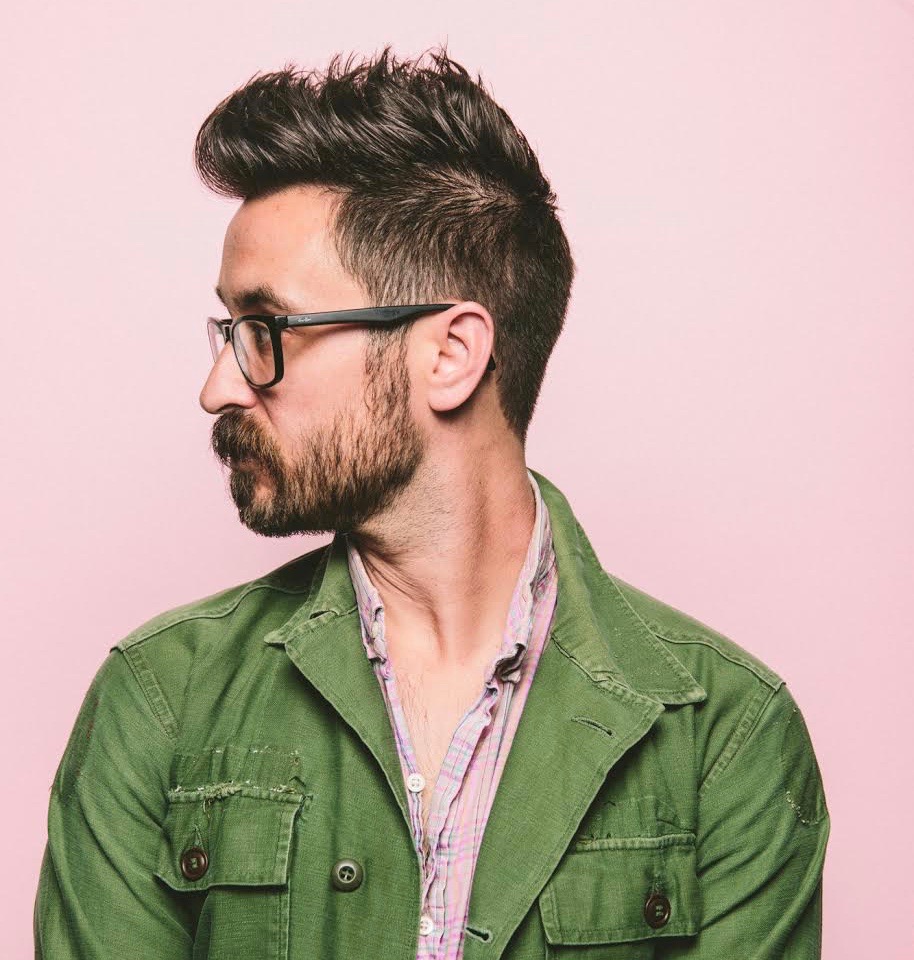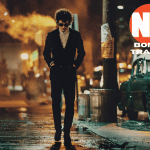THE READING ROOM: Sean McConnell on Entering Other Worlds Through Books

Sean McConnell recorded his first album when he was 15, and he’s written songs for a range of artists including Meat Loaf (“Our Love & Our Souls,” “Blue Sky”), Tim McGraw (“Mr. Whoever You Are”), and Martina McBride (“Closing Time”), among others. He’s joined up with Garrison Starr and Peter Groenwald now to form My Sister, My Brother, a stellar group of songwriters that releases its eponymous EP this Friday.
When he’s not writing songs, though, McConnell is reading, widely and avidly, starting out each day with a cup of coffee and the poems of Rumi, the 13th-century Persian poet. I caught up by phone with McConnell to chat about books, reading, and songwriting.
What books are on your nightstand right now?
Eckhart Tolles’ A New Earth; I’m reading it now for the second time. It’s an important book for me. It really speaks to being present in the moment and not looking back at the past or ahead to the future. It helps me bring some peace to the chaos. I’m also reading a compilation of Thomas Merton’s writings. I read a lot from the Tao Te Ching, and I read something from Rumi every morning. Also, Brendan Manning’s writings; I was brought up listening to his tapes. I am re-reading The Chronicles of Narnia, as I’m reading it to my 9-year-old daughter.
What’s the last book that made you laugh? Cry? Angry?
I find myself laughing to myself as I read The Chronicles of Narnia to my children. Some of the story is clearly for adults, and I chuckle at some of the stuff that went over my head when I read it as a child. Well, reading the news — which I don’t do often — makes me laugh, cry, and angry at the same time.
What kind of reader were you as a child?
I was a big reader as a kid. I grew up reading The Lord of the Rings. I also read a lot of music biographies. My parents are musicians, so we had lots of those books around the house. Up until the time I was 11, we lived in a small town in Massachusetts, and I went to the library two or three times a week. We went to see movies on the movie night there, we went to story times, and we checked out lots of books. The Hobbit is the first book I recall reading where I felt like I was somewhere else, where I was entering a world different than the one I lived in. I couldn’t wait to get back to it. Reading that book was the first time I got bit by the power of a book.
What’s the best book you have ever received as a present?
A buddy of mine gave me a book called Songwriters on Songwriting. It features interviews with over 100 songwriters about their approaches to writing songs. On the one hand, it’s very inspirational because you get to see how these writers work; on the other, it’s very telling about how these songwriters feel about the process. Like for Tom Petty, writing songs is a very freeing experience, but for Leonard Cohen, it’s hell (laughs).
How does your reading inspire or influence or shape your songwriting?
What we read really affects our view of the world, and in that way my reading affects my songwriting. Generally, though, what I’m reading doesn’t shape my writing or necessarily inspire me to write a song. I very rarely come across a phrase or a word that I feel like I need to add to my song. I know sometimes people might come to a co-write and say, “wow, I just read this line in Hemingway, and I want to work it into a song,” but that’s not the way I work. There’s something to be said about the untouched mind and what it comes up with; something about the roughness of the songs is exciting.
What do you read more, fiction or nonfiction?
A healthy combination of both. I might be in a season of reading lots of fiction and then say to myself that I want to pick some nonfiction now. I try to keep it at 50/50.
Print or electronic?
I can’t do electronic. I am surrounded by screens so much of the time anyway. I really appreciate the tactile experience of holding a book.
Your ideal place to read?
I love reading on airplanes or on trains. I tend to read less at home because I’m gone so much and want to be present with my family. But when I’m home I like to get in bed a little early and read.
Do you have a favorite bookstore?
I don’t have a memory of a specific store. When I’m on the road, and I have some time, I like to go into mom-and-pop bookstores. My grandfather, Lee McConnell, was an obsessive reader. He worked at Polaroid, but when he retired he hosted a public access television show called Booked for TV. He would get books every day, and he would review books and interview authors on his weekly show. Every so often we would carry away boxes of books from his house, so I got many books that way. He definitely planted the seed of being a book lover in me. We have the VHS tapes of his shows, and we’ve been going through them recently. He got to interview Elie Wiesel. We got to see the unedited footage of that show, too, and it was very powerful.
How do you arrange your books?
In my wife’s and my bedroom, we have bookshelves along the wall, so we have a wall of books. They books are not arranged alphabetically, though. We can just look up and find the books we want.
Do you always finish books?
Very rarely do I not finish a book. I might put a book aside for a while, but I will go back to it.
Are there any books you’ve faked reading?
I am sure there were a handful in high school. I was more interested in getting through the test than reading the book. I know there are some really important classic books that I missed out on that I want to try to go back and read.
If you could recommend one book about music for artists just breaking into the music business, what would it be?
There are two. One is The War of Art, by Steven Pressfield. It’s a really interesting look at why we create art. It focuses on following your muse and not letting commercialism take over. The other is the one I’ve already mentioned: Songwriters on Songwriting. It’s very important to write songs every day.
What is one book you won’t leave home without?
A collection of Rumi’s poems. I almost always have that book in my backpack.
What book changed your life?
Tolles’ The Power of Now; Brendan Manning’s The Ragamuffin Gospel; Thomas Merton’s Seeds of Contemplation; The Hobbit: it opened the world of books to me.
You’re throwing a dinner party. What five authors, living or dead, would you invite?
Thomas Merton, Ram Dass — who just died a few months ago — Rumi, J.R.R. Tolkien, Thich Nhat Hanh. It might be a quiet party (laughs).




